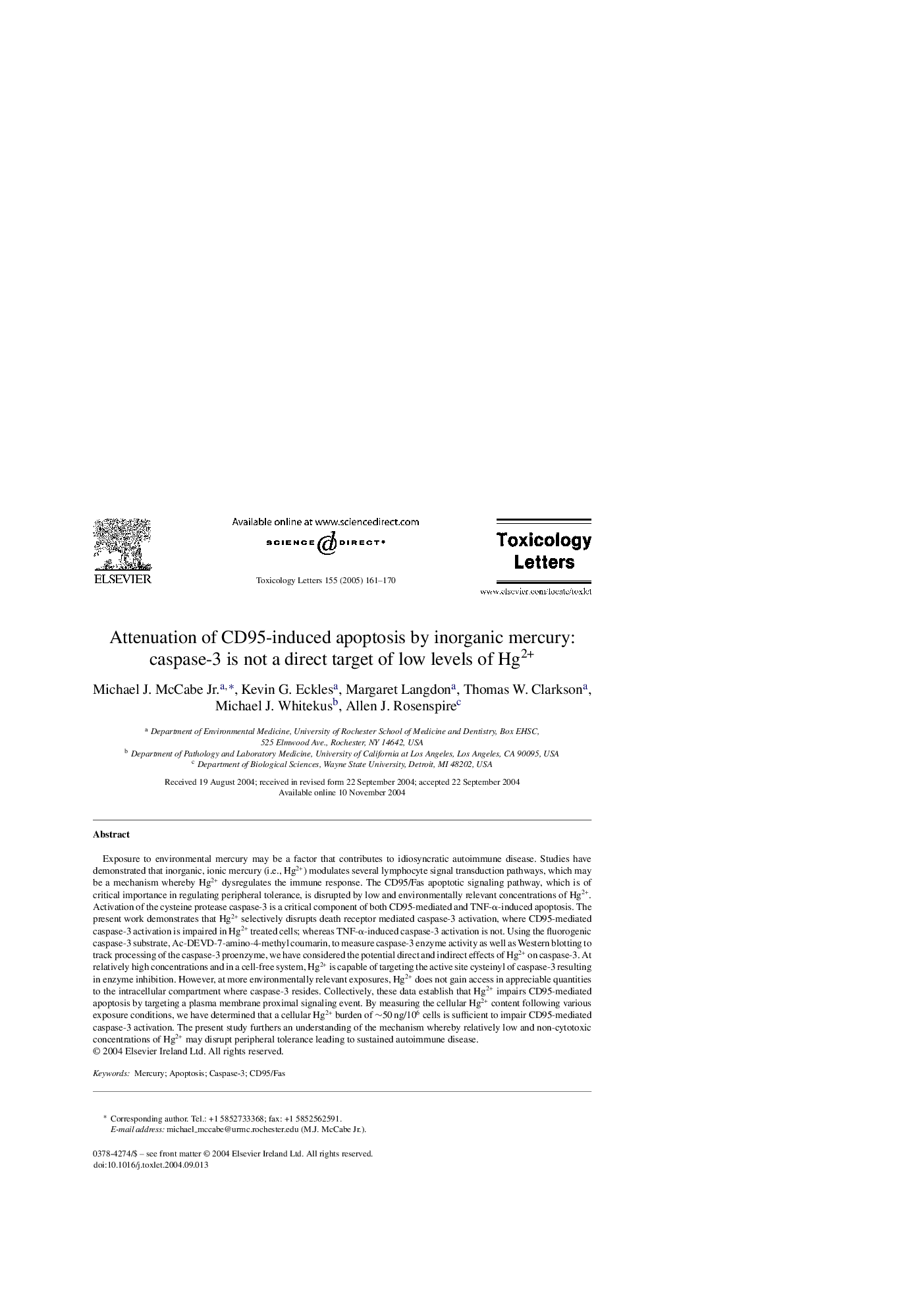| Article ID | Journal | Published Year | Pages | File Type |
|---|---|---|---|---|
| 9037581 | Toxicology Letters | 2005 | 10 Pages |
Abstract
Exposure to environmental mercury may be a factor that contributes to idiosyncratic autoimmune disease. Studies have demonstrated that inorganic, ionic mercury (i.e., Hg2+) modulates several lymphocyte signal transduction pathways, which may be a mechanism whereby Hg2+ dysregulates the immune response. The CD95/Fas apoptotic signaling pathway, which is of critical importance in regulating peripheral tolerance, is disrupted by low and environmentally relevant concentrations of Hg2+. Activation of the cysteine protease caspase-3 is a critical component of both CD95-mediated and TNF-α-induced apoptosis. The present work demonstrates that Hg2+ selectively disrupts death receptor mediated caspase-3 activation, where CD95-mediated caspase-3 activation is impaired in Hg2+ treated cells; whereas TNF-α-induced caspase-3 activation is not. Using the fluorogenic caspase-3 substrate, Ac-DEVD-7-amino-4-methyl coumarin, to measure caspase-3 enzyme activity as well as Western blotting to track processing of the caspase-3 proenzyme, we have considered the potential direct and indirect effects of Hg2+ on caspase-3. At relatively high concentrations and in a cell-free system, Hg2+ is capable of targeting the active site cysteinyl of caspase-3 resulting in enzyme inhibition. However, at more environmentally relevant exposures, Hg2+ does not gain access in appreciable quantities to the intracellular compartment where caspase-3 resides. Collectively, these data establish that Hg2+ impairs CD95-mediated apoptosis by targeting a plasma membrane proximal signaling event. By measuring the cellular Hg2+ content following various exposure conditions, we have determined that a cellular Hg2+ burden of â¼50 ng/106 cells is sufficient to impair CD95-mediated caspase-3 activation. The present study furthers an understanding of the mechanism whereby relatively low and non-cytotoxic concentrations of Hg2+ may disrupt peripheral tolerance leading to sustained autoimmune disease.
Related Topics
Life Sciences
Environmental Science
Health, Toxicology and Mutagenesis
Authors
Michael J. Jr., Kevin G. Eckles, Margaret Langdon, Thomas W. Clarkson, Michael J. Whitekus, Allen J. Rosenspire,
